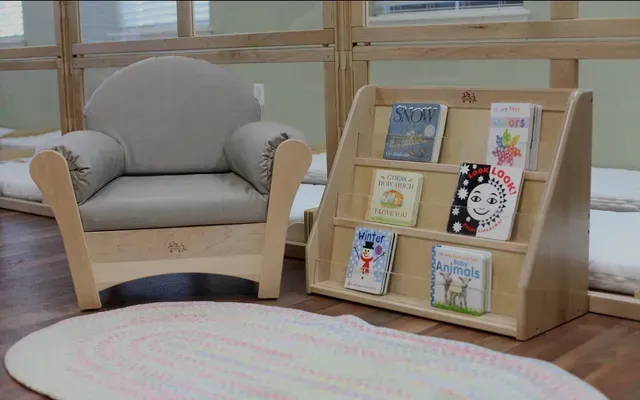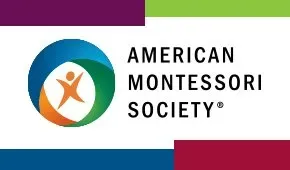
Montessori education is a “whole child” approach to teaching that encompasses all areas of child development—cognitive, emotional, social, and physical. It encourages children and adolescents to learn at their own pace in an environment that fosters independence, problem-solving, creativity, and collaboration.
That said, parents may find that Montessori schools do things a little differently than traditional schools. This is not right or wrong; it is simply a different way of encouraging children to learn, and one that may or may not be the ideal fit for your family.
Let’s look at the questions from our quiz and which answers resonate most with Montessori parents. This will give you a better understanding of the Montessori classroom so you can decide if it is right for your child.
1. Children learn best when they are:
Given rewards, like stickers
Connected with internal motivation and interests
We believe learning should be an exciting and joyful experience for children—something they choose to do without the expectation of rewards for academic outcome, participation, or cooperation.
Instead of stickers or other prizes, the reward a child gets from the Montessori classroom is the self-assuredness that comes from reaching a new level of independence or learning a new skill.
2. I am choosing a school to:
Prepare my child for a traditional kindergarten
Prepare my child academically, socially, and emotionally for school and life
Montessori education is more about preparing children to become thoughtful and well-adjusted adults and less about making sure they advance to the next grade or academic level. This is achieved by creating a consistent pathway for learning that begins as early as infancy and carries through to elementary education and even beyond.
Therefore, it does not make sense to enroll your child in a Montessori Primary program, for example, if you intend to transfer them to a traditional kindergarten classroom the following year.
3. When considering education, I:
Am open to learning about all methods and want to find one that is the best match for my child
Believe traditional methods are the best option
Some parents prefer the structure and familiarity of a traditional classroom setting. This is absolutely fine.
However, because children tend to learn in different ways and at different paces, they often benefit from being in an environment that allows them to learn in the way that works best for them. The Montessori classroom is a great example.
A parent whose child may thrive in a Montessori school setting is one who believes in giving their child the freedom to make choices and guide their own learning journey in an environment that fosters imagination and independent thinking.
4. My child learns best when in an environment that is:
Orderly, bright, and peaceful
Noisy and full of visual stimulation
You will notice that Montessori classrooms have a calm, inviting atmosphere that tends to be quieter than walking into, say, a typical elementary school classroom; there are a couple reasons for this.
First, because Montessori students are given the freedom to choose their own activities, they are more likely to be fully engrossed in those activities and less likely to be asking the teacher for direction. Children move at their own pace throughout the classroom, and teachers are there primarily to ensure children are engaged and learning.
Second, because quieter environments have been shown to foster quality learning, Montessori students are encouraged to speak softly with each other and with their teachers. In this way, they learn to respect those around them and promote a positive learning environment.
5. The most important outcome for my child is to:
Be prepared to achieve in elementary school and beyond
Be a happy, well-adjusted, and self-motivated human being
Again, the Montessori method of education places a greater emphasis on self-paced, independent learning over making sure children advance to the next grade or academic level.
We believe learning should be an enjoyable experience that encourages children to work beside and respect one another while at the same time developing their individual personalities and unique talents.
6. The ideal school schedule for my child would be:
A few hours a couple of days a week
A consistent schedule 5 days a week
The Montessori program is thoughtfully structured to help children maximize their potential in an environment where they feel content and well adjusted, and a big part of that comes from consistency.
Children thrive on routines and knowing what to expect each day, which is why families who can commit to a consistent, 5-day-a-week schedule are those who benefit most from a Montessori education.
7. It is important that your child completes worksheets and memorizes facts at school.
True
False
Although often used in traditional school settings, worksheets and similar memorization and repetition tools are rarely (if ever) used in the Montessori classroom.
We believe children learn more effectively through hands-on experience and independent exploration rather than regurgitating facts onto a sheet of paper. Students are also more likely to retain important concepts when they are able to apply them to different situations and test their validity for themselves.
8. You want your child to:
Learn at their own pace and be challenged according to their unique ability
Learn according to a curriculum based upon their age
In a traditional education setting, parents are often told that a child is not “reading at their level” or that they should be “further along by now” in a certain subject or task because of their age.
In the Montessori classroom, children are encouraged to learn at their own pace and given the time and space necessary to fully understand each concept. Children naturally want to learn and understand things, and giving them the freedom and the opportunity to do so is the key to helping them achieve their learning goals.
9. I want my child to be in an environment that:
Encourages them to explore their interests, without interruption
Has an external curriculum taught at specific intervals each day
While traditional classrooms are very structured in terms of time (e.g. 30 minutes each day for Math, 30 minutes each day for Reading, etc.) the Montessori classroom is not. Instead, children can choose which activities they want to participate in and for how long, so as not to interrupt the learning and exploration process.
10. At school and home, I want my child to learn to be:
Independent and do things for themselves
To rely on adults for everyday life skills
One of the primary goals of the Montessori method is to teach children to think and do things for themselves instead of relying on adults for everything.
In the words of the American Montessori Society, “Given the freedom and support to question, probe deeply, and make connections, Montessori students grow up to be confident, enthusiastic, and self-directed learners and citizens, accountable to both themselves and their community.”
Montessori students learn at their own pace through observation, exploration, and experimentation. Although it is the perfect fit for many families, it is not the perfect fit for all families.
If you are interested in learning more about Montessori education and its unique benefits, we encourage you to schedule a tour or visit our blog to learn more.




